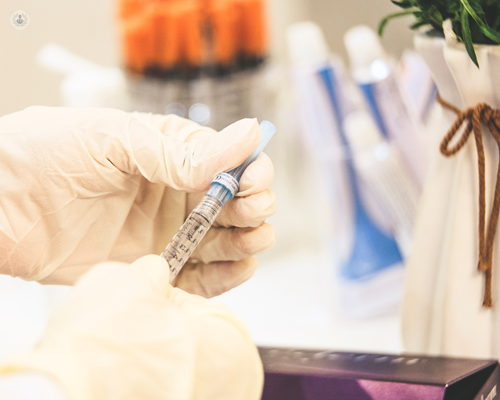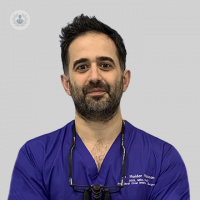How are polynucleotides used in skin rejuvenation treatments?
Written in association with:Polynucleotides are typically administered through a series of injections directly into the skin. These injections deliver the polynucleotides to the dermal layer, where they begin to promote cell activity and encourage the synthesis of collagen and elastin.

How do they assist in skin rejuvenation?
This approach helps rejuvenate the skin by:
- Improving hydration and moisture retention
- Enhancing skin elasticity and firmness
- Reducing fine lines and wrinkles
- Supporting tissue regeneration for a smoother and more youthful appearance
Polynucleotide treatments are often performed in medical or aesthetic clinics by dermatologists or trained professionals. The procedure is minimally invasive, and while patients might experience mild redness or swelling, these side effects usually subside quickly.
Benefits of polynucleotide-based treatments
Enhanced skin regeneration
Polynucleotides boost cellular turnover and encourage the repair of damaged tissue, leading to healthier and revitalised skin.
Improved hydration and elasticity
By attracting and retaining water, polynucleotides help keep the skin hydrated, improving its elasticity and reducing the appearance of fine lines.
Safe and biocompatible
Polynucleotides are naturally occurring in the body, making them biocompatible and generally safe for use. This reduces the risk of adverse reactions compared to synthetic substances.
Minimal downtime
The minimally invasive nature of polynucleotide treatments means that patients can usually return to their normal activities soon after the procedure, making it a convenient option for those with busy schedules.
Who can benefit from polynucleotide skin rejuvenation?
Polynucleotide treatments are suitable for individuals looking to rejuvenate their skin without undergoing more invasive procedures. It is an excellent option for those wanting to address signs of ageing, improve skin texture and hydration or enhance the overall quality of their skin. Additionally, polynucleotides can be beneficial for individuals with skin damage due to sun exposure or other environmental stressors.
Before proceeding with treatment, consulting with a qualified dermatologist or aesthetic specialist is essential to ensure that polynucleotide therapy aligns with the patient’s specific skin concerns and goals.
Polynucleotides are a promising and effective tool in skin rejuvenation, offering a natural and biocompatible way to enhance skin health and appearance. By promoting tissue regeneration, improving hydration and boosting elasticity, polynucleotides help achieve smoother, more youthful-looking skin with minimal downtime and few side effects. For those seeking non-invasive anti-ageing solutions, polynucleotide treatments provide a modern approach that can revitalise and restore the skin’s natural beauty.


